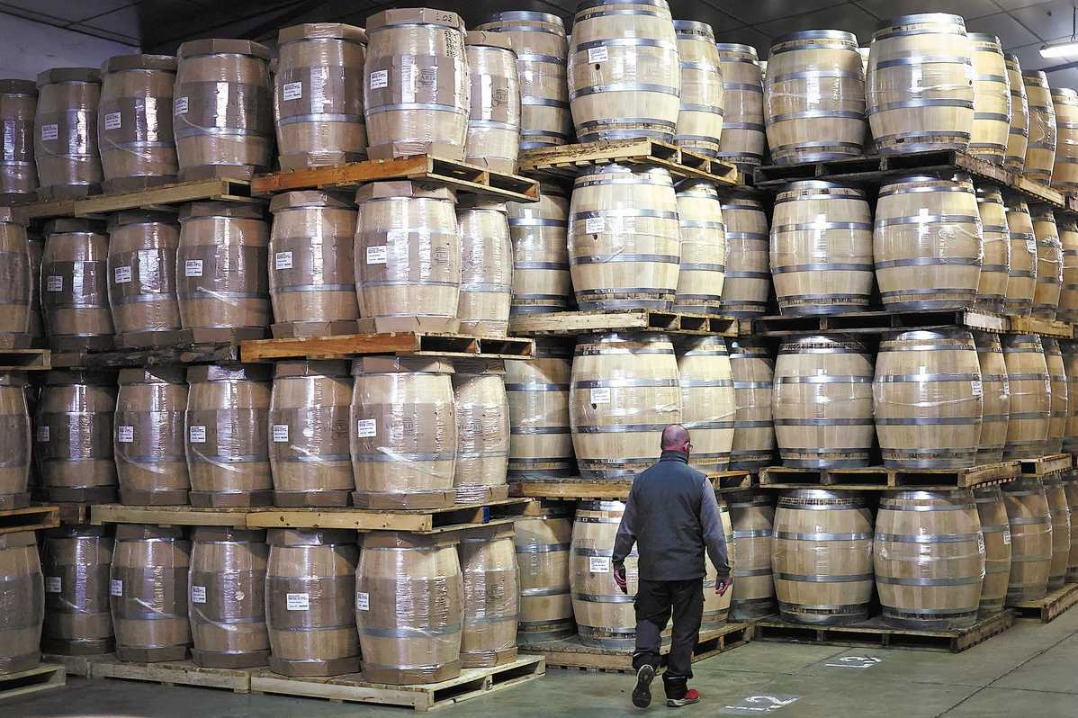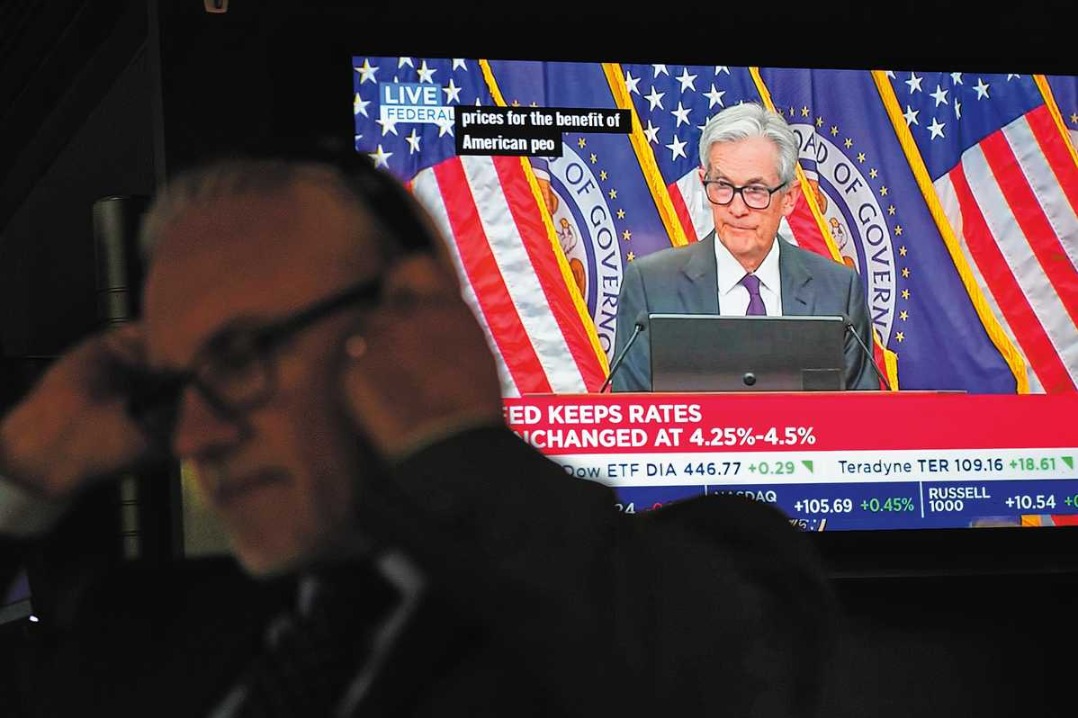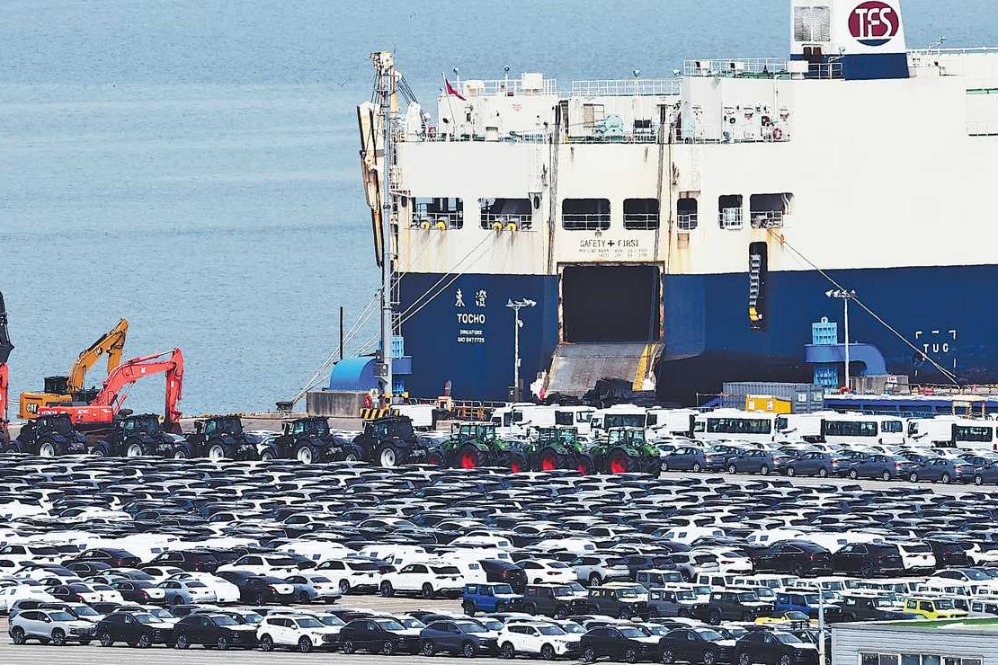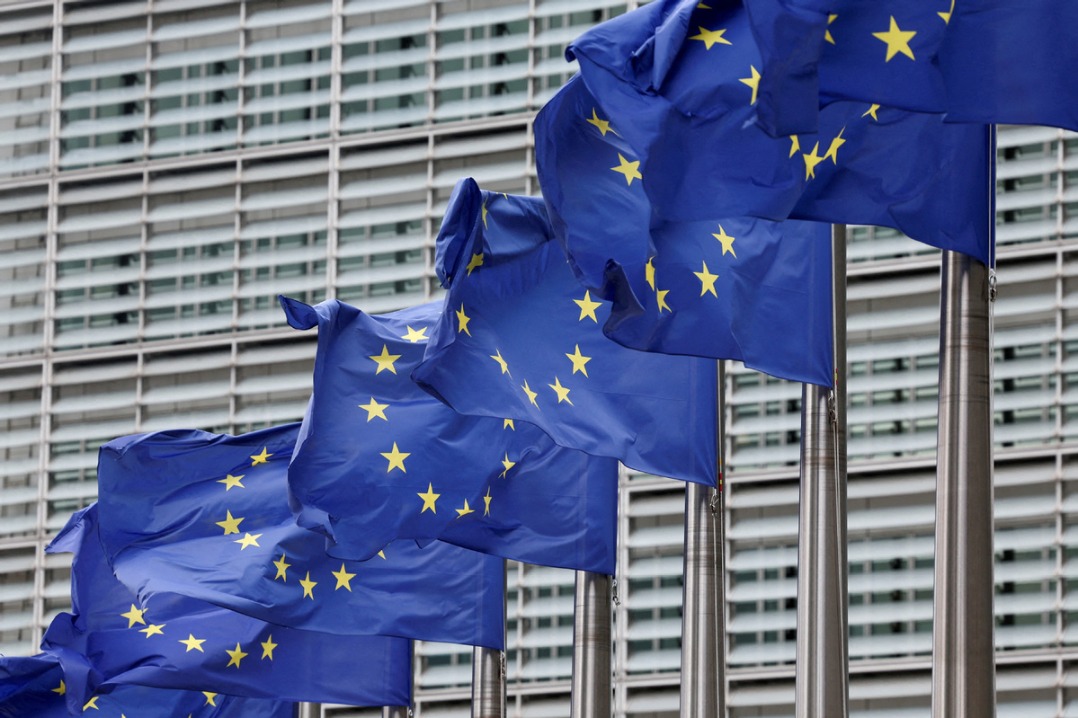US tariffs may sink European toy firms

Toy manufacturers based in the European Union are coming to terms with the details of a trade deal agreed recently between the bloc and the United States, while also hoping tension between Beijing and Washington eases because many of them also have production facilities in China.
The US and the EU agreed the trade deal on Sunday, which calls for a baseline tariff of 15 percent to be imposed to most EU exports to the US, and a 0 percent tariff to be applied to certain US exports to the EU.
"I am not happy about the tariffs, and I cannot see in what ways they will benefit small or even large businesses in Europe," said Juan Martinez, founder of Art Fabula, a Swedish toy company that counts the US market as its second-largest.
"Maybe, it's not as bad as I initially feared, but it still means my products will be 15 percent more expensive for US customers," he said. "It is a mess. I'll probably have to adjust my profit margins, but that makes it harder to work with retailers and galleries in the US, since they also take a significant cut. I've already noticed a decline in customers from the US."
Martinez's company makes a type of sofubi toy, which is a style of vinyl collectible toy associated with Japan. His toys have designs and a painting process completed in Europe.
The independent company has relied heavily on US markets and Martinez said the EU market would not be an ideal alternative to off set losses because the sofubi toy culture is nonexistent in Europe.
"As artists, we have one foot in the business and one foot in bankruptcy," he said. "We do this because we love making this kind of art, but we're not as stable as bigger companies. Many of us will crumble if the market becomes unstable."
While China has long been the world's largest producer and exporter of toys, some manufacturing remains in Europe. According to the EU's executive, the European Commission, 99 percent of EU toy manufacturing companies are small and medium-sized businesses, which account for 61 percent of employment in the EU's toy industry, providing more than 50,000 jobs.
The commission said the EU exports toys worth about 280 million euros ($325 million) to the US.
John Baulch, publisher and managing director of Toy World Magazine, a UK trade publication, said that although the tariff level agreed upon recently is much lower than the previously threatened 30 percent rate and, therefore, offers some relief, it will not be easy for businesses to swallow the extra costs they will now face.
"There will be lots of difficult decisions for people to take," Baulch said, suggesting that toy makers may have to adjust their products or their packaging, to squeeze out some savings, and that retailers will likely have to sacrifice a portion of their margins. Prices will definitely go up as well, but businesses will need to limit those increases to preserve sales volume, he added.
In some cases, customers can be quite sensitive to even slight fluctuations in price, Baulch added, noting that it might not make a huge difference when a 27 or 28 euro product increases in price to 30 euros, but that a 30 euro toy rising in price to 33 or 34 euros might have a big impact, because people may perceive the new price as beyond a recognized price point and therefore be "significantly" more expensive.
The US and the EU are still negotiating a list of products that will be subject to a 0 percent tariff rate and further details are set to be agreed this week. But toys have, so far, not been mentioned by Ursula von der Leyen, president of the European Commission, as something that should be exempted.
Even during US President Donald Trump's first term, when China was the main target of his tariff policies, toys were spared. Baulch said, since toys are usually aimed at children, they are often only subject to minimal taxes and are not singled out in the way cars and steel often are.
European toy makers have also been praying for positive outcomes from the third round of trade talks between China and the US, which took place in Stockholm, Sweden this week, given that shifting production hubs away from China would not be child's play.
Peter Handstein, founder and CEO of Hape Toys, a German toy company that has manufactured the majority of its toys in China for the past three decades, said the supply chain in China is "unbeatable", and that building a similar system elsewhere would not be possible in the short term.
China's skills valued
While labor costs are rising, Handstein described that as an "achievement" that reflects China's rapid economic growth and said what sets the country apart today is not its cheap labor costs but its infrastructure and skilled workforce, which has the knowledge needed to produce top products efficiently.
"Other countries will have factories, but do they have road connections from the factories to the ports? Do the ports have capacity? Are they on the shipping route with the same volume of ships that China has?" Baulch asked. "What China has built is an all-around infrastructure that means it could produce the volume of goods with the required turnaround time."
Martinez, whose Art Fabula toy prototypes are made in China, also said his company is interested in China not only because of its labor costs.
"My toys must be done in the traditional sofubi way. I also need efficiency, good communication, and a factory that complies with all legal requirements from the EU. That's where I've found a difference between China and other countries," he said. "Producing in high-quality factories in China isn't cheap, but they are reliable, fast, and understand exactly what you need."
Baulch from Toy World Magazine warned that the US market, in the end, will be the one that is hardest-hit by the US tariff policy, and that the upcoming fall season could prove to be a concerning quarter there, as businesses and families head into the pre-Christmas sales period.
"What we're hoping is that politicians can come to an agreement, so we can get back to doing what we do best, which is selling toys and making kids happy," he said.
































